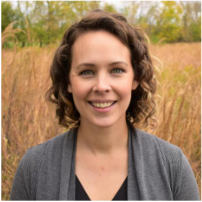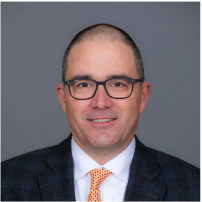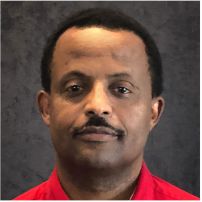
Soil and Water Management Topics
Printable conference program
-
29. Assessing and communicating Iowa agriculture’s vulnerabilities to climate (1.0 SW)
Laurie Nowatzke, coordinator, USDA Midwest Climate Hub, Iowa State University, Ames, IA; Justin Glisan, State Climatologist for Iowa, Iowa Department of Agriculture and Land Stewardship
As Midwestern agriculture experiences increasing pressures from climate change—including drought, extreme precipitation, and shifting humidity levels—there is a need for thorough assessment and clear communication of the sector’s vulnerabilities. The Midwest Climate Hub and the Great Lakes Integrated Sciences & Assessments, in partnership with a number of regional experts, are developing state-specific agriculture vulnerability assessments that synthesize historical and projected climate data, describe the corresponding agricultural pressures, and present options and recommendations for on-farm climate adaptation. This presentation will provide an overview of in-depth climate vulnerability assessments currently developed for the Midwest (through this effort and others); it will also present results and recommendations from the Iowa vulnerability assessment and describe current gaps and needs in the emerging “climate-smart agriculture” space.
Session K - Tuesday, 10:10 AM - 11:00 AM
Session L - Tuesday, 11:10 AM - 12:00 PM
-
30. Climate resilience: Soil erosion and water resource management are key (1.0 SW)
Rick Cruse, professor, Agronomy and director, Iowa Water Center, Iowa State University, Ames, IA
Water management is the most important factor for building climate resilience into a cropping system. Evidence suggests best water management approaches vary predictably by location in a field. The logical connection between soil erosion and water management will be identified as will management options to reduce the negative soil erosion impact on crop production.
Session I - Tuesday, 8:00 AM - 8:50 AM
Session J - Tuesday, 9:00 AM - 9:50 AM
-
31. Impacts of cover crops on nitrate loss at the small watershed scale in Iowa (1.0 SW)
Matthew Helmers, professor and extension agricultural engineer, Agricultural and Biosystems Engineering, Iowa State University, Ames, IA
Winter cereal rye cover crops have been shown at the research plot scale to reduce nitrate-N loss. However, there is still a need to document these improvements at the small watershed scale. The objectives of this project are to document water quality impacts from cover crop implementation when 40-70% of the watershed implements cover crops.
Session M - Tuesday, 1:00 PM - 1:50 PM
Session N - Tuesday, 2:00 PM - 2:50 PM
-
32. Soil compaction management: Field machinery traffic and impacts on soil physical properties and crop yield (1.0 SW)
Mehari Tekeste, associate professor, Agricultural and Biosystems Engineering, Iowa State University, Ames, IA
The continuous trend of agricultural farm equipment getting bigger and heavier axle create concerns of soil compaction from excessive loading on wet and loose soil conditions, negatively impacting water infiltration, root development, and crop yield. The effect of machine-induced soil compaction on soil stress under dynamic tire and track vehicle passes, soil physical properties (soil bulk density and soil cone index) and crop yields was investigated in central Iowa. Field measurement of soil compaction and tools to predict soil compaction can be used to manage the effects of soil compaction and will be presented.
Session G - Monday, 3:10 PM - 4:00 PM
Session H - Monday, 4:10 PM - 5:00 PM
-
33. What do deep soil moisture measurements tell us about water stress in Iowa? (0.5 SW)
Sotirios Archontoulis, professor, Agronomy, Iowa State University, Ames, IA; Carolina Freitas, graduate research assistant, Agronomy, Iowa State University
We will present soil moisture data from two Iowa locations (northwest and central) and discuss drought effects on corn and soybean yields. Soil moisture measurements were taken up to 10 feet deep throughout the growing seasons, including data on groundwater table
Session C - Monday, 11:00 AM - 11:25 AM
Session D - Monday, 11:35 AM - 12:00 PM




